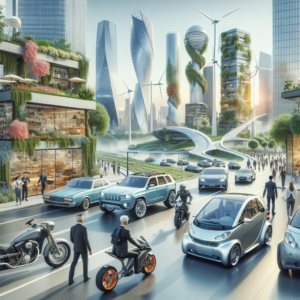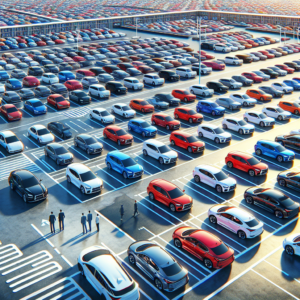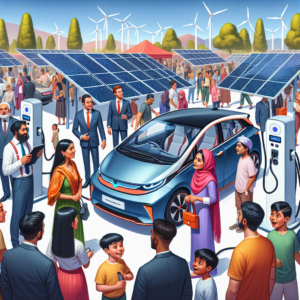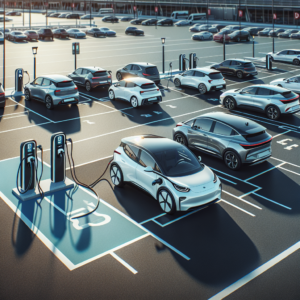Revolutionizing the Road: Shocking Innovations in Hybrid Car Technology

As the world grapples with the pressing challenges of climate change and dwindling fossil fuel reserves, the automotive industry is undergoing a seismic shift towards sustainable transportation solutions. Hybrid cars, which combine traditional internal combustion engines with electric propulsion systems, have emerged as a pivotal technology in this transition. Recent innovations in hybrid car technology are not only enhancing vehicle performance but also significantly reducing environmental impacts. This article explores the evolution of hybrid technology, breakthrough advancements in battery systems, the role of electric motors, smart energy management systems, future trends, and consumer perspectives on these revolutionary changes.
Understanding Hybrid Car Technology: A Brief Overview of Its Evolution and Impact
Hybrid car technology has evolved significantly since its inception in the late 19th century, with the first commercially successful hybrid vehicle, the Toyota Prius, debuting in 1997. Initially viewed as a niche market, hybrids have gained traction as consumers and manufacturers alike recognize their potential to reduce greenhouse gas emissions and improve fuel efficiency. The impact of hybrid technology is profound, as it not only addresses the urgent need for cleaner transportation but also serves as a bridge to fully electric vehicles. By integrating electric motors with traditional engines, hybrid cars offer a versatile solution that caters to a wide range of driving needs while contributing to a reduction in overall carbon footprints.
Breakthrough Battery Technologies: Enhancing Efficiency and Reducing Environmental Impact
At the heart of hybrid vehicles lies the battery technology that powers their electric motors. Recent advancements in lithium-ion batteries, such as increased energy density and faster charging capabilities, have significantly enhanced the efficiency of hybrid cars. Manufacturers are now exploring solid-state batteries, which promise to deliver even greater energy storage with reduced environmental impact. These innovations not only extend the driving range of hybrid vehicles but also minimize reliance on rare materials, thereby addressing sustainability concerns. As battery technology continues to evolve, it is expected that hybrids will become more accessible and appealing to a broader audience, further accelerating their adoption in the global market.
Advanced Powertrains: The Role of Electric Motors in Hybrid Vehicle Performance
Electric motors play a crucial role in the performance of hybrid vehicles, providing instant torque and enhancing acceleration while reducing fuel consumption. The integration of advanced powertrains that utilize both electric and combustion engines allows for a seamless transition between power sources, optimizing performance based on driving conditions. Innovations such as regenerative braking systems, which capture energy typically lost during braking and convert it back into usable power, further enhance the efficiency of hybrid vehicles. As manufacturers continue to refine these powertrains, consumers can expect improved driving experiences characterized by greater responsiveness, reduced noise, and lower emissions, making hybrids an increasingly attractive option for environmentally conscious drivers.
Smart Energy Management Systems: Optimizing Fuel Consumption and Emissions
The development of smart energy management systems has revolutionized the way hybrid vehicles operate, allowing for real-time monitoring and optimization of energy use. These systems utilize advanced algorithms to determine the most efficient combination of electric and gasoline power, adapting to driving patterns and conditions. By intelligently managing energy distribution, hybrids can maximize fuel efficiency and minimize emissions, even in urban environments where stop-and-go traffic is common. Furthermore, these systems can provide drivers with valuable feedback on their driving habits, encouraging more eco-friendly practices. As technology continues to advance, the integration of artificial intelligence and machine learning into energy management systems is expected to further enhance the performance and sustainability of hybrid vehicles.
The Future of Hybrid Cars: Trends and Predictions for Sustainable Transportation
Looking ahead, the future of hybrid cars appears promising, with several key trends shaping the landscape of sustainable transportation. As governments around the world implement stricter emissions regulations and incentivize the adoption of greener technologies, hybrid vehicles are likely to play a crucial role in meeting these targets. Additionally, the ongoing development of infrastructure to support electric vehicles, such as charging stations and battery-swapping networks, will further bolster the appeal of hybrids. Innovations in connectivity, such as vehicle-to-grid technology, will enable hybrids to contribute to energy management on a larger scale, allowing them to serve as mobile energy sources. As consumer preferences shift towards sustainability, hybrid cars are poised to become a mainstay in the automotive market, bridging the gap between traditional vehicles and fully electric options.
Consumer Perspectives: How Innovations in Hybrid Technology Influence Buying Decisions
Consumer attitudes towards hybrid technology are evolving, driven by a growing awareness of environmental issues and the benefits of fuel-efficient vehicles. Innovations in hybrid technology, such as improved battery life, enhanced performance, and advanced safety features, are influencing buying decisions, making hybrids more appealing to a diverse range of consumers. Research indicates that consumers are increasingly prioritizing sustainability in their purchasing choices, with many willing to pay a premium for vehicles that align with their values. Additionally, the perception of hybrids as technologically advanced and reliable options is gaining traction, further enhancing their market appeal. As manufacturers continue to innovate and address consumer concerns regarding cost, performance, and convenience, the hybrid vehicle segment is expected to flourish in the coming years.
In conclusion, the innovations in hybrid car technology represent a significant leap forward in the quest for sustainable transportation solutions. With advancements in battery technology, powertrains, energy management systems, and consumer acceptance, hybrid vehicles are well-positioned to play a vital role in reducing environmental impacts while meeting the diverse needs of drivers. As the automotive industry continues to evolve, the ongoing commitment to research and development in hybrid technology will be crucial in shaping a cleaner, more sustainable future for transportation. The road ahead is not only about reducing emissions but also about embracing a new era of mobility that prioritizes efficiency, performance, and environmental responsibility.


















